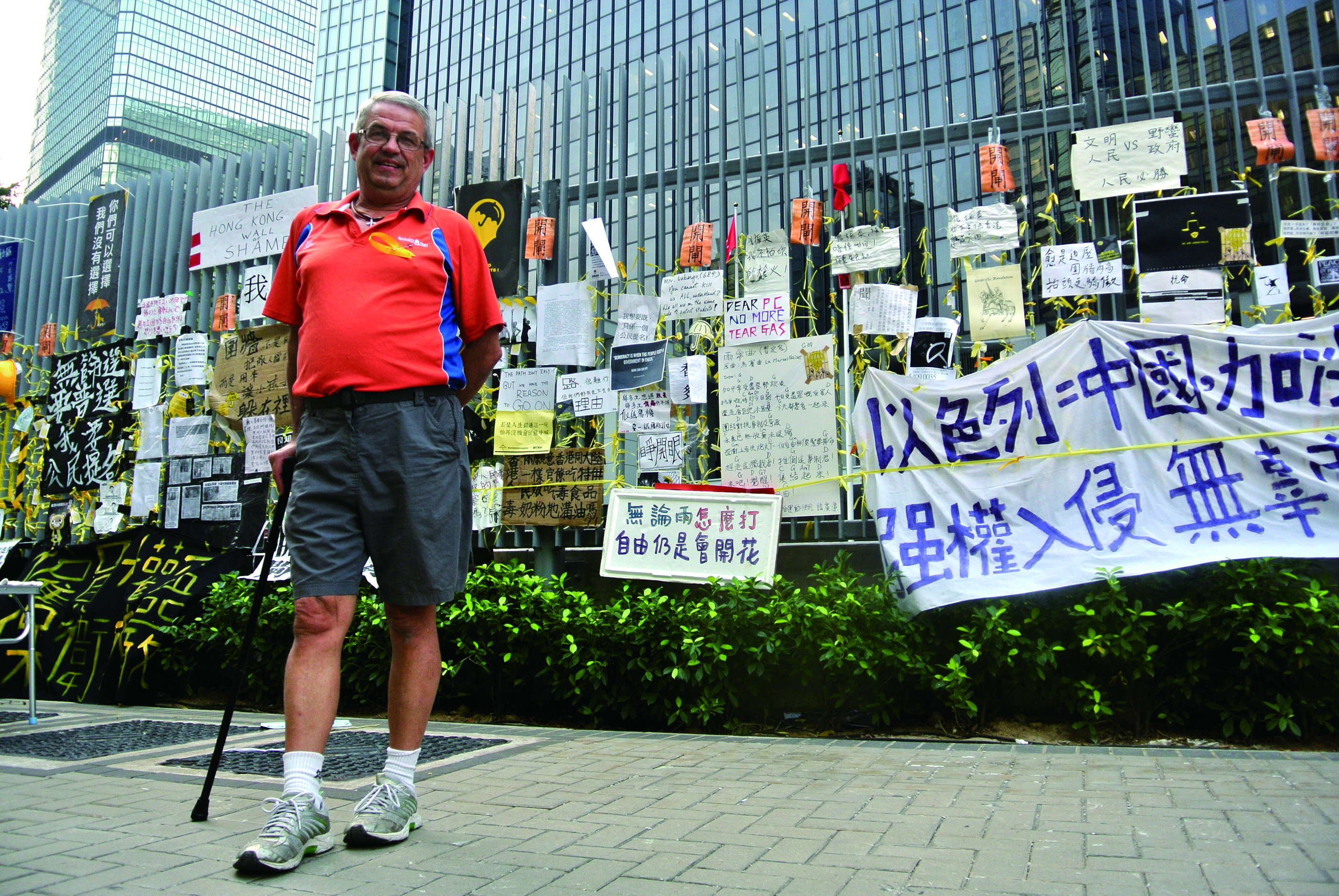American Bob Kraft is on a mission to “do the right thing”
By Henry Lee
In the scorching sun and pouring rain, protesters taking part in the occupation of Admiralty starting in late September sometimes sat quietly, sometimes sang songs, sometimes conducted heated discussions and sometimes slept. Among them was a silver-haired, 57-year-old American man, sitting on a folding chair and facing the now fenced and heavily guarded forecourt of the Central Government Offices popularly known as Civic Square.
Varsity first met the American, Pastor Bob Kraft, before the Occupy action began. He was setting up a tent and some hand-made banners outside the District Court in Wan Chai. Kraft was there to protest about what he saw as inadequate family rights and child rights in Hong Kong.

Kraft is always speaking out against injustice in society and is often seen at political events and protests. He undertook a 106-hour hunger strike for family rights and child rights in the summer of 2013; he protested on behalf of the elderly who do not have money to fix their teeth and he went to the “Black Cloth March” organised by Occupy Central to call for genuine universal suffrage in Hong Kong. His devotion to such causes is driven by his past.
Kraft was a high school student in the United States during the 1960s and 1970s when there were lots of protests against the Vietnam War and racism. He recalls that on his first day of high school, students started a class boycott to demand more student rights. He says this made a big impact on him.
After high school, Kraft says he joined the army and was stationed in West Germany during the Cold War. This experience consolidated for him the idea that freedom could make a difference to people’s lives.
Although he served in the military, Kraft’s great interest was, in fact, in tennis. After he left the army, he worked as a tennis coach and ran a business selling sportswear. All went well for him, but he started to question his life.
“You reach a point when you just say, this is really not the most important thing in a person’s life. You can’t go any further,” says Kraft. “I just turned my life into a direction; that is helping people, instead of helping myself.”
So, in 1986, Kraft sold his business and went to the Pacific and Asia Christian University in Hawaii before embarking on church work in Asia. He travelled to seven nations in Asia, including the Philippines, and was shocked by how the disadvantaged lived there. The experience opened his eyes to inequality and injustice and showed him that where there is injustice, there can be no human rights. Kraft resolved to lead a meaningful life, helping the underprivileged and speaking out against injustice.
In 1992, Kraft settled down in Hong Kong after marrying his Chinese wife. As a pastor, he has to be concerned about the lives of the people in his community. He sees people in Hong Kong facing worsening social problems, such as unfair working conditions, housing problems, poor family relations, and unfavourable government policies. “The anger of the people is about the living standards of people…It’s becoming unbearable for people…They almost can’t sustain their living,” he says.







































